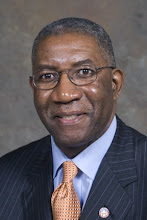When Senator Edward Kennedy died last week at his family home in Massachusetts he left a nation that is much better than it was when he entered the United States Senate forty-six years ago. We are better, in large part, because Kennedy made improving our society the work of his life.
When Ted Kennedy entered the Senate, only white people were able to patronize hotels, motels, restaurants, theaters, and other places of public entertainment and accommodation at will. The right to vote was systematically and openly denied to people of color. Persons with physical or mental disabilities were discriminated in the workplace. Kennedy devoted himself to challenging these inequities and correcting them.
Women were denied equal access to educational opportunity, including the opportunity to participate in athletic programs. The right to vote was denied to people between the ages of 18 and 21, despite the fact that this age group was being drafted into the armed forces. Kennedy worked to change these things.
There were no wheel chair ramps in or outside government buildings. There was no governmental protection from discharge or other adverse employment actions for people who needed to take unpaid leave in order to care for sick or injured family members. Insurance benefits for mental conditions were substantially lower and less favorable than benefits for physical conditions. Kennedy made these situations his business, and refused to rest until they changed.
These and other conditions changed in large measure because Ted Kennedy refused to be content with the privilege he enjoyed by virtue of being born white, wealthy, and to an influential family. Kennedy was not forced to champion the causes of the poor, women, the elderly, sick and disabled, veterans, politically disenfranchised, youth, immigrants, homosexuals, racial and ethnic minority groups, and others without well-connected lobbying firms in Washington, DC. He chose to become our champion.
That decision to devote his life, gregarious spirit, and fierce competitive determination to advance the interests of these and other often ignored and neglected persons, Ted Kennedy acted from the virtues of the Roman Catholic faith nurtured by his mother, Rose Kennedy. In refusing to succumb to self-pity, bitterness, or cynicism after experiencing personal failings, family tragedies, and personal injuries, Ted Kennedy demonstrated the power of resurrection hope affirmed by the Christian faith. In refusing to be bullied into supporting unjust wars, Ted Kennedy showed us that patriotism and peace are not mutually exclusive.
I was a young lawyer in 1980 when Ted Kennedy ran for President, and was happy to be part of his fledgling campaign effort in Arkansas. We were far more zealous than effective, as shown by the sound defeat Senator Kennedy experienced in the Arkansas presidential primary election of that year. Even so, I am grateful that I was able to share, even at a distance, Kennedy's passion and vision for a just society.
Over the past days I have resisted the temptation to bemoan how our society might have been improved had Kennedy's passion and vision been embraced by the people who served as President since 1980. None of us can re-create the past, and Kennedy did not dwell on it. We are provided time and energy to live in the here and now, and the test of our living is what we do with that blessing. Kennedy used the time he was given to help others live in less pain, more dignity, and with fewer unfair barriers.
I thank God for what Ted Kennedy did for our society because of his devotion to justice, sense of outrage concerning oppression, and his commitment to peace. As I join people around the world in breathing prayers of thanks and benedictions for his life of service, I also pray for his widow, children, surviving sister, nieces, nephews, grandchildren, current and former staff members, and his many colleagues for whom his passing is especially painful.
Finally, I thank God that Ted Kennedy showed me, an American black man, lawyer, Christian minister, and former public official, what his brothers John and Robert, and what Dr. Martin Luther King, Jr. and other champions of social justice demonstrated. The life of service to others—especially on behalf of the poor, disadvantaged, sick, misunderstood, and powerless—is the life that counts most. I thank God that Ted Kennedy refused to be deluded or made morally insensitive by his white privilege, family wealth, political stature, and social influence from understanding that America is never better than the plight of its most vulnerable people. Ted Kennedy made easing our burdens the work of his life. Our challenge is to carry on that work so that our society and world will be more just, peaceful, and sane.
I hope to visit Senator Kennedy's grave at Arlington National Cemetery during my next trip to Washington and whisper another prayer of thanks. In the meantime, I am inspired by his parting words during the Democratic National Convention in Denver: "The work goes on. The hope still lives. And the dream lives on." Because of that inspiration, I will press on with that work, hold fast to that hope, and live in the transcending power of that dream.
Monday, August 31, 2009
Subscribe to:
Comments (Atom)
